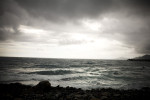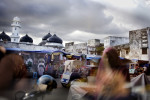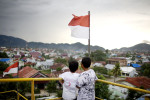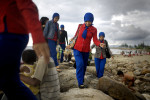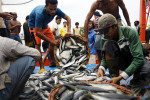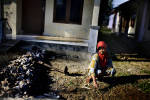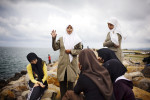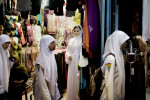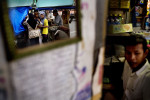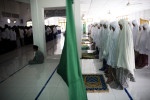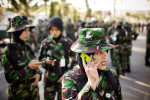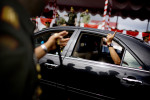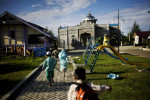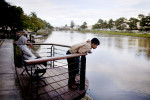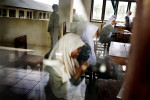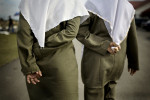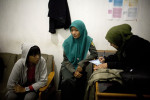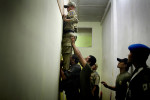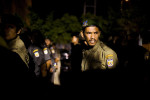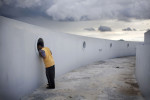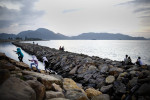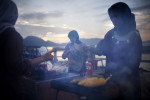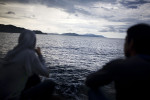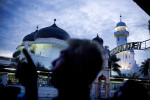More Photo Essays: Sharia Law in post-tsunami Aceh, Indonesia
Banda Aceh, the provincial capital of Aceh, Indonesia, is also known as the “veranda to Mecca” – the place where Islam’s influence first entered Indonesia, the most populous Muslim country in the world.
Even before 2004’s devastating tsunami killed almost 160,000 people in the region, residents of Banda Aceh couldn’t say they knew what a “normal” life was like. For 30 years they’d lived with a civil war over natural resources in a politically unstable region as volatile as the earthquakes that haunt the country.
Aceh is the only province in Indonesia that practices Sharia law. In 2009, Banda Aceh legalized the caning and stoning of adulterers, as well as the flogging of homosexuals. The provincial government created a special Sharia unit, the Wilayatul Hibah, to monitor non-Islamic conduct and dress by looking for Muslims drinking alcohol, gambling, unmarried couples sitting too close, prostitution, and women wearing non-Islamic attire. Although traditionally Aceh is a matriarchal culture, women who break Sharia rules are often stigmatized, and often become objects of harassment, especially rape. Young adults who admit to having premarital sex are forced into marriage.
Conservative Muslim clerics have taught that the great tsunami was punishment for people’s sins, but many Acehnese felt that the tsunami was a blessing that forced peace upon their land – though Sharia law has become stricter since that time.
After the black waves of the tsunami destroyed much of the city, hundreds of international aid organizations rebuilt Banda Aceh, and the surrounding villages. They helped residents establish a new economy, with a renewed sense of peace and progress. And thanks to the 2005 Helsinki peace agreement between the Indonesian government and the rebel separatist army, the Free Aceh Movement, the people of Aceh can travel about freely in their own city, with the daily buzz of motorbikes and calls to prayer, and without the military checkpoints and political strife.
Today, public canings at the mosques and vigilantism in villages are on the rise, as is the growing number of coffee shops – populated the youth and university students checking out their Facebook feeds – in the second-largest market behind the U.S. – and listening to live music, a first for Aceh.
Although many Acehnese women embrace Sharia, they don’t agree with it. Dozens of women’s clothing stores that have opened since the tsunami, offering a colorful selection of veils and stylized Islamic tunics. My Acehnese women friends have confided, “There is Sharia – but at least there is no war.”
The intention of my project is to document the crossroads of progress in the province of Banda Aceh, Indonesia, beyond the 2004 tsunami recovery and post-conflict life, with the growth of Islamic law in the region as its people seek to discover their provincial identity.
Published in National Public Radio
